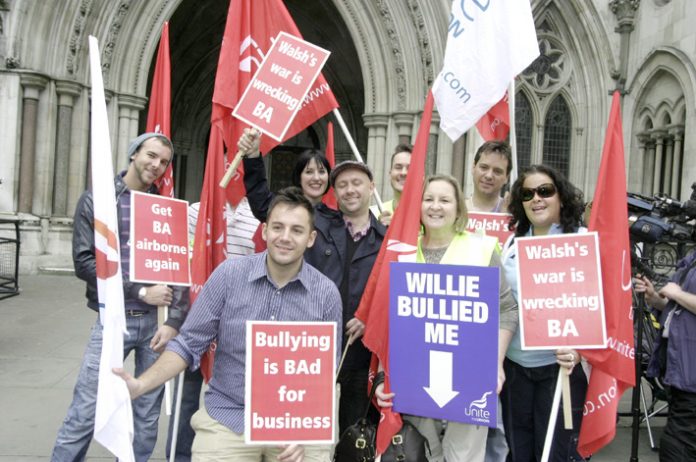
THE CAPITALIST CRISIS is beyond control and moving according to its own laws, with the Bank of England’s Monetary Policy Committee (MPC) admitting that it is flying blind and has been astonished by the continuing rise in inflation.
The minutes of the August 8th MPC meeting admit that the going is not just ‘choppy,’ but that the committee is all at sea, musing about what will happen next.
Its estimation is that there are ‘substantial risks’ of a deeper slump, at the same time as there is a ‘gathering momentum’ of the economy, ie galloping inflation.
The MPC voted with one dissenter to keep rates at 0.5 per cent, while retaining the £200bn quantitative easing programme.
The minutes reveal that there were risks that ‘were substantial, and members stood ready to respond in either direction as the balance of risks evolved’.
The minutes also reveal that the contradictions of the crisis have already split the committee, and the formation of two factions have begun; one calling for an increase in the quantitative easing programme to try and stimulate a recovery, while the other calls for a rate rise to try to halt the inflationary surge in food and fuel prices.
At the moment, the watchword is indecision, with the MPC conceding that ‘weak demand might lead to some capacity being scrapped’ by business, and the slump deepening.
The dissenting and pro-rate rise committee member, Andrew Sentence, says that the risk is that there is going to be a sharp rise in inflation.
Meanwhile, the UK is falling deeper and deeper into debt.
The coalition borrowed £3.8bn over the month of July, down from £14.7bn in June, £18.4bn in May and £6.1bn in July last year, bringing public borrowing for the four months of the financial year to £44.9bn.
The Office for Budget Responsibility is forecasting borrowing of £149bn for the financial year as a whole – down from £155bn in 2009-10.
Debt, including the cost of the bank bail-outs, as a percentage of GDP, is at a record high, rising to 63.7pc of GDP or £927.4bn.
In his mandatory letter to the Chancellor, to explain the inflationary crisis, Bank of England governor King admitted: ‘Inflation has been volatile over the past two years or so. In that time, it has moved above 5 per cent, then fallen to 1.1 per cent, risen again to 3.7 per cent, and has since started to fall back once more.
‘But on average over that period, inflation has been above the target. And the recent strength of inflation has surprised the MPC.’
King asked: ‘Over what period does the MPC expect inflation to return to the target?’
He answered: ‘As set out in the August Inflation Report, following the announcement in the Budget of a further increase in VAT, inflation is now expected to remain above the two per cent target until the end of 2011 – about a year longer than projected in May.
He warned about dangers on the ‘upside’.
‘If the current period of above-target inflation were to become engrained in inflation expectations and this affected wages and prices, it would be costly to bring inflation back down again.
‘The MPC will continue to set policy in order to balance these risks to the outlook for inflation.
‘We stand ready either to expand or to reduce the extent of monetary stimulus as the outlook demands.’
He added: ‘We know from our experience in the 1970s and 1980s how destructive high inflation can be. Price stability, as the remit for the MPC states, is “a precondition for. . . high and stable levels of growth and employment”.’